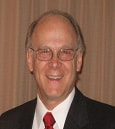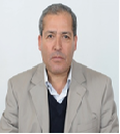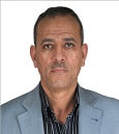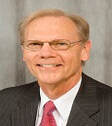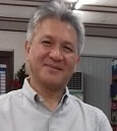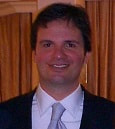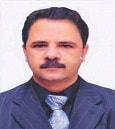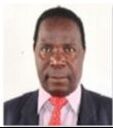Dr. Chebaane is a senior water management expert and an international development specialist. He has more than 25 years of experience in integrated water resources management, Transboundary river basins management, groundwater management, climate change adaptation, irrigation, urban water management, water use efficiency for agricultural, domestic, institutional and commercial sectors , environmental management, institutional strengthening, water policy, and public-private partnership. He has served in more than 25 countries in the Middle East, Africa, Asia, Europe, the Caribbean, and North America with various international agencies and institutions including the U.S. Agency for International Development (USAID), the World Bank, the Inter-American Development Bank, the Millennium Challenge Corporation (MCC), the Food and Agriculture Organization of the United Nations (FAO), government institutions, and private firms such as Development Alternatives Inc. (DAI), SAIC, Tetra Tech-ARD, and Haggler Bailly.
Dr. Chebaane has proven experience in managing and providing technical leadership to international development projects in challenging environments. He headed the FAO Nile Basin Transboundary Water Resources Management project where he played an instrumental role in building capacities of the 10 Nile riparian countries in the management of shared water resources. He served as a lead consultant for the Global Water Operators Partnerships Alliance of the UN-Habitat working with water utilities in Europe, North America, and Africa to develop a guide for the preparation of performance improvement plans that assist water operators to help one another improve their capacity in providing access to water and sanitation services.
Dr. Chebaane headed a USAID program to support the first initiative on participatory groundwater management in Jordan. He led the inter-American Bank team for the preparation of water policy in Haiti and carried out the World Bank evaluation of public-private partnership for the management of Port-au-Prince water utility. He directed the Litani River Basin project on participatory management of wastewater and solid waste. He served as Technical Advisor to the Minister of Water Resources in Oman for special studies, including assessment of the desalination technology in the Golf region and Oman, cloud seeding, fog water collection, and modeling of climate variability and its impact on water management. Under his leadership, the $10 million USAID-funded water demand management project in Jordan won the Global Distinction Award in the category of water efficiency from the Global Water Intelligence network.
Dr. Chebaane worked for around 10 years for DAI, an international development firm, in business development and projects management, and served as head of the water practice. He has authored a book on springs in Oman, published more than 20 research and technical papers, written numerous technical reports, and served as reviewer for professional journals. He is the main author of five guides on water use efficiency for hotels, hospitals, office buildings, high-rise buildings, and residential units. He holds a Ph.D. from Colorado State University in water management, Master’s degree in hydrology and hydrogeology from the University of Paris IV, and agricultural engineering degree from the Institut National Agronomique de Tunis. He is fluent in Arabic, English, and French.
Dr. Chebaane has proven experience in managing and providing technical leadership to international development projects in challenging environments. He headed the FAO Nile Basin Transboundary Water Resources Management project where he played an instrumental role in building capacities of the 10 Nile riparian countries in the management of shared water resources. He served as a lead consultant for the Global Water Operators Partnerships Alliance of the UN-Habitat working with water utilities in Europe, North America, and Africa to develop a guide for the preparation of performance improvement plans that assist water operators to help one another improve their capacity in providing access to water and sanitation services.
Dr. Chebaane headed a USAID program to support the first initiative on participatory groundwater management in Jordan. He led the inter-American Bank team for the preparation of water policy in Haiti and carried out the World Bank evaluation of public-private partnership for the management of Port-au-Prince water utility. He directed the Litani River Basin project on participatory management of wastewater and solid waste. He served as Technical Advisor to the Minister of Water Resources in Oman for special studies, including assessment of the desalination technology in the Golf region and Oman, cloud seeding, fog water collection, and modeling of climate variability and its impact on water management. Under his leadership, the $10 million USAID-funded water demand management project in Jordan won the Global Distinction Award in the category of water efficiency from the Global Water Intelligence network.
Dr. Chebaane worked for around 10 years for DAI, an international development firm, in business development and projects management, and served as head of the water practice. He has authored a book on springs in Oman, published more than 20 research and technical papers, written numerous technical reports, and served as reviewer for professional journals. He is the main author of five guides on water use efficiency for hotels, hospitals, office buildings, high-rise buildings, and residential units. He holds a Ph.D. from Colorado State University in water management, Master’s degree in hydrology and hydrogeology from the University of Paris IV, and agricultural engineering degree from the Institut National Agronomique de Tunis. He is fluent in Arabic, English, and French.
Ms. Shiner has more than 20 years of experience in helping companies meet the requirements of federal, state, and international contracting. Ms. Shiner has led highly technical-proposal and contract development both domestically and abroad and across numerous agencies including the Department of Defense, USAID, MCC, World Bank, African Development Bank, Inter-American Development Bank, and other financial, public, and private institutions and NGO’s.
Ms. Shiner works as an integral part of bid and execution teams. She helps guide contractors through all project cycle including indirect rates, pricing, contractual compliance, and execution. She brings well-established processes for contracting individuals and companies and managing contracts. Ms. Shiner has extensive experience in understanding, interpreting, and managing the Federal Acquisition Regulations (FAR) along with specific regional and international regulations. Her experience spans from small projects through billion-dollar-plus projects covering various sectors including water, energy, agriculture, sanitation and health, defense, manufacturing, IT, LEED architectural and building projects. She is capable of handling both product-based and performance-based service contracts. She holds a Bachelor Degree in Finance from George Mason University.
Ms. Shiner works as an integral part of bid and execution teams. She helps guide contractors through all project cycle including indirect rates, pricing, contractual compliance, and execution. She brings well-established processes for contracting individuals and companies and managing contracts. Ms. Shiner has extensive experience in understanding, interpreting, and managing the Federal Acquisition Regulations (FAR) along with specific regional and international regulations. Her experience spans from small projects through billion-dollar-plus projects covering various sectors including water, energy, agriculture, sanitation and health, defense, manufacturing, IT, LEED architectural and building projects. She is capable of handling both product-based and performance-based service contracts. She holds a Bachelor Degree in Finance from George Mason University.
Ms. Abboud has 17 years of experience in the planning, design, and implementation of international environmental and development projects. She manages and contributes to projects covering water resource management, WASH, hydrometeorology, disaster risk management, biodiversity conservation, and sustainable utilization of natural resources. She is a skilled proposal writer and resource mobilizer with highly developed coordination, partnership building, and networking abilities. Ms. Abboud has worked in the Middle East and sub-Saharan Africa with several international organizations including USAID, World Bank, United Nations Development Program (UNDP), German International Assistance Agency (GIZ), and UN Women.
Ms. Abboud has expertise with environmental strategies, policies, institutional frameworks, capacity building, awareness/communication, and engagement and empowerment of local communities. For the Burundi UN Women’s office, she coordinated program activities such as the establishment of a national network of 500+ women from civil society organizations that work as community peace mediators. For the UNDP in Lebanon, Ms. Abboud assisted the Lebanese Agriculture Institute and local communities to promote sustainable harvesting and processing of medicinal and aromatic plants; evaluated Lebanon’s policies, legislation, and institutional framework for biodiversity; and served as Project Manager on the Conservation of Wetlands and Coastal Zones in the Mediterranean project. Ms. Abboud supported 10 projects for GIZ in Lebanon that ranged from sustainable forest management to agro-processing to sustainable agriculture and water management in wetlands.
Ms. Abboud holds a Master of Science in Ecosystem Management from the American University of Beirut, and a Bachelor of Arts in Environmental Studies from the University of California at Los Angeles. She is fluent in English and Arabic and speaks conversational French.
Ms. Abboud has expertise with environmental strategies, policies, institutional frameworks, capacity building, awareness/communication, and engagement and empowerment of local communities. For the Burundi UN Women’s office, she coordinated program activities such as the establishment of a national network of 500+ women from civil society organizations that work as community peace mediators. For the UNDP in Lebanon, Ms. Abboud assisted the Lebanese Agriculture Institute and local communities to promote sustainable harvesting and processing of medicinal and aromatic plants; evaluated Lebanon’s policies, legislation, and institutional framework for biodiversity; and served as Project Manager on the Conservation of Wetlands and Coastal Zones in the Mediterranean project. Ms. Abboud supported 10 projects for GIZ in Lebanon that ranged from sustainable forest management to agro-processing to sustainable agriculture and water management in wetlands.
Ms. Abboud holds a Master of Science in Ecosystem Management from the American University of Beirut, and a Bachelor of Arts in Environmental Studies from the University of California at Los Angeles. She is fluent in English and Arabic and speaks conversational French.
Dr. McGahey has 36 years of applied experience designing, implementing, evaluating and documenting urban, rural, and peri-urban programs that engage the public health, social science, finance, governance, and engineering sectors to improve and sustain water and sanitation services. He has supported programs in Afghanistan, Cambodia, Colombia, Democratic Republic of Congo, Ethiopia, Gaza, Ghana, Haiti, India, Indonesia, Jamaica, Jordan, Kenya, Kyrgyzstan, Lebanon, Malawi, Mongolia, Nepal, Nicaragua, Senegal, Tanzania, Thailand, Timor-Leste, Vietnam, and Zambia, and is a regularly invited speaker to graduate programs across the US producing the next generation of international development professionals.
Dr. McGahey has worked both in the field and as a Washington, D.C.-based professional backstopping and providing direct assistance to the World Bank, United States Agency for International Development USAID, the Millennium Challenge Corporation, numerous non-profits, and Asian Development Bank (ADB) projects since 1994. During that time, he has developed a flexible and forward-thinking ability to fully engage across technical sectors and levels of actors to facilitate collaboration, share talents, and develop whole-of-system solutions to local and national water-related challenges. He is comfortable in harsh settings and in boardrooms as he has the skills to work with community leaders, governmental decision makers, multi-lateral consultative organizations, and senior executives.
Dr. McGahey has authored analytical and program reports on market facilitation, risks of innovation, global water security and US foreign policy, and national stories on Ethiopia’s and Senegal’s efforts to achieve the Millennium Development Goal for water supply. He has managed over $50 million dollars of service delivery programming and is currently active integrating water supply and sanitation into a national nutrition program, developing a business model for commercialization of municipal fecal sludge management, and drafting a guidance paper for USAID on the linkages between WASH and water security. Dr. McGahey holds a Bachelor’s degree in Civil Engineering from the Georgia Institute of Technology, and a Master’s degree and Ph.D. in Engineering from the Johns Hopkins University.
Dr. McGahey has worked both in the field and as a Washington, D.C.-based professional backstopping and providing direct assistance to the World Bank, United States Agency for International Development USAID, the Millennium Challenge Corporation, numerous non-profits, and Asian Development Bank (ADB) projects since 1994. During that time, he has developed a flexible and forward-thinking ability to fully engage across technical sectors and levels of actors to facilitate collaboration, share talents, and develop whole-of-system solutions to local and national water-related challenges. He is comfortable in harsh settings and in boardrooms as he has the skills to work with community leaders, governmental decision makers, multi-lateral consultative organizations, and senior executives.
Dr. McGahey has authored analytical and program reports on market facilitation, risks of innovation, global water security and US foreign policy, and national stories on Ethiopia’s and Senegal’s efforts to achieve the Millennium Development Goal for water supply. He has managed over $50 million dollars of service delivery programming and is currently active integrating water supply and sanitation into a national nutrition program, developing a business model for commercialization of municipal fecal sludge management, and drafting a guidance paper for USAID on the linkages between WASH and water security. Dr. McGahey holds a Bachelor’s degree in Civil Engineering from the Georgia Institute of Technology, and a Master’s degree and Ph.D. in Engineering from the Johns Hopkins University.
Mr. Richard Noth is a management and financial expert with over 30 years of experience in public-private partnerships (PPP), institutional development, organizational restructuring, and utility finance and infrastructure management with a focus on water, sanitation, wastewater, and power infrastructure. He brings proven experience in the assessment and determination of optimal restructuring and financing options for water and sanitation services, including analyzing options for PPP. He also has extensive experience in evaluating economic feasibility of infrastructure capital expenditures and investment projects, including financial due diligence and identification of investments. Mr. Noth has worked in over 30 countries in Africa, Asia, Europe, Central and South America, and the Middle East with donors including the World Bank, USAID, Millennium Challenge Corporation (MCC), United Nations (UN), Department for International Development (DFID), and Inter-American Development Bank.
Mr. Noth´s work with USAID's Southeast Europe Regional Infrastructure Program resulted in the European Union approving financing for the €380 million Small and Medium Town Infrastructure Development program he designed to rehabilitate utility infrastructure in Romania. He advised Cairo’s wastewater utility in Egypt on becoming autonomous and improving management practices for the operation and proper maintenance of $850 million U.S.-sponsored investment in wastewater infrastructure. He led a pre-feasibility analysis for the establishment a corporate entity for operation and maintenance (O&M) for water conveyance and distribution of water to farmers in the Jordan Valley. As water sector advisor in Mozambique, Mr. Noth provided technical input to MCC’s due diligence on the institutional and management aspects of their proposed $300 million urban and rural WASH investment in the first Compact. He advised the Department of Water Affairs and Forestry in South Africa in designing guidelines to prepare their business policies, plans, and annual reports and financial statements. Mr. Noth led the effort as PPP transaction advisor to Azerbaijan for its water and sanitation services in Baku. With the UN, he led efforts to involve private management in five small city water systems in Peru, community and business organizations in the work of Jamaica´s water company (with USAID), and with the Inter-American Development Bank he designed model corporate structures and contractual frameworks including leases and performance contracts, for water services in over 20 cities and towns in Honduras.
Mr. Noth holds a Master of Public Administration from the Wharton School of the University of Pennsylvania, and a Bachelor of Arts in Labor Management Relations from Pennsylvania State University. He speaks fluent English and Spanish, and basic French.
Mr. Noth´s work with USAID's Southeast Europe Regional Infrastructure Program resulted in the European Union approving financing for the €380 million Small and Medium Town Infrastructure Development program he designed to rehabilitate utility infrastructure in Romania. He advised Cairo’s wastewater utility in Egypt on becoming autonomous and improving management practices for the operation and proper maintenance of $850 million U.S.-sponsored investment in wastewater infrastructure. He led a pre-feasibility analysis for the establishment a corporate entity for operation and maintenance (O&M) for water conveyance and distribution of water to farmers in the Jordan Valley. As water sector advisor in Mozambique, Mr. Noth provided technical input to MCC’s due diligence on the institutional and management aspects of their proposed $300 million urban and rural WASH investment in the first Compact. He advised the Department of Water Affairs and Forestry in South Africa in designing guidelines to prepare their business policies, plans, and annual reports and financial statements. Mr. Noth led the effort as PPP transaction advisor to Azerbaijan for its water and sanitation services in Baku. With the UN, he led efforts to involve private management in five small city water systems in Peru, community and business organizations in the work of Jamaica´s water company (with USAID), and with the Inter-American Development Bank he designed model corporate structures and contractual frameworks including leases and performance contracts, for water services in over 20 cities and towns in Honduras.
Mr. Noth holds a Master of Public Administration from the Wharton School of the University of Pennsylvania, and a Bachelor of Arts in Labor Management Relations from Pennsylvania State University. He speaks fluent English and Spanish, and basic French.
Mr. EL Haiba has about 30 years of experience in water resources planning and management, watershed management, water quality management, water supply and sanitation, and wastewater treatment and reuse. He has served in Morocco and several countries in Africa and the Middle East with a number of regional agencies including the Arab Bank for Economic Development in Africa (BADEA) and The Arab Organization for Agriculture Development (AOAD), and international consulting firms such as Mott Mac Donald and Development Alternatives Inc (DAI).
Mr. EL Haiba has worked in several projects’ feasibility and design studies in the areas of municipal and rural water supply, sewerage infrastructures and sewage treatment facilities, small and medium size irrigation schemes, in addition to river basins planning and water resources mobilization. He was also involved in a joint project of FAO/BADEA in sub-Saharan Africa aimed at enhancing capacity building of small farms’ holders via improved practices in irrigated agriculture. He participated in the elaboration of a number of case studies on groundwater governance in Morocco funded by the World Bank.
Mr. EL Haiba has recently served as a senior expert for 4 years on a USAID funded program aimed at improving agriculture water use efficiency and groundwater management in Morocco. He also served as an international rural infrastructure consultant on the feasibility study for the development of the 15,000 ha Alatona irrigation project at Office du Niger, funded by the Millennium Challenge Corporation (MCC).
Mr. El Haiba holds a Master’s degree in Hydrology from the Free University of Brussels, an agriculture engineering degree from the Institute of Agronomy in Morocco, and has followed Post-graduate studies in the field of Watershed Management at the University of Minnesota, USA. He is fluent in Arabic, French and English.
Mr. EL Haiba has worked in several projects’ feasibility and design studies in the areas of municipal and rural water supply, sewerage infrastructures and sewage treatment facilities, small and medium size irrigation schemes, in addition to river basins planning and water resources mobilization. He was also involved in a joint project of FAO/BADEA in sub-Saharan Africa aimed at enhancing capacity building of small farms’ holders via improved practices in irrigated agriculture. He participated in the elaboration of a number of case studies on groundwater governance in Morocco funded by the World Bank.
Mr. EL Haiba has recently served as a senior expert for 4 years on a USAID funded program aimed at improving agriculture water use efficiency and groundwater management in Morocco. He also served as an international rural infrastructure consultant on the feasibility study for the development of the 15,000 ha Alatona irrigation project at Office du Niger, funded by the Millennium Challenge Corporation (MCC).
Mr. El Haiba holds a Master’s degree in Hydrology from the Free University of Brussels, an agriculture engineering degree from the Institute of Agronomy in Morocco, and has followed Post-graduate studies in the field of Watershed Management at the University of Minnesota, USA. He is fluent in Arabic, French and English.
Dr. Kleemeier is a senior water and sanitation consultant best known for her work on institutional, regulatory, and management innovations such as public private partnerships in rural water supply, and on knowledge management and knowledge-sharing in water supply. She has over thirty years of experience in international development assistance, primarily in the rural and community water supply sectors: research, teaching and training, and all phases of the project cycle. Dr. Kleemeier has worked in twelve African countries, Bangladesh, China, India, Maldives, and Vietnam with various international agencies and institutions including USAID, MCC, World Bank, Water and Sanitation Program, Danida, SIDA, and WaterAid.
Dr. Kleemeier served as a Senior Water and Sanitation Specialist in the World Bank Water Unit, 2009-2012, where she provided technical support to water and sanitation lending operations, and managed learning and knowledge activities for water specialists within the World Bank. She acquired considerable first-hand knowledge of rural water supply while successively managing the community components of rural water programs in East Africa. She emphasized promoting the sustainability of the water supplies through on-going support to village water committees by district government water technicians and community development workers.
Dr. Kleemeier has completed several major research projects on rural water supply and rural development assistance, her main findings have been published in internationally-referred journals. She is an associate for Water for Life Solutions LLC. She holds a Ph.D. from the University of California, Berkeley in Political Science, and two Master degrees from the same university in Political Science and Economics. She is a native English speaker, and is competent to work professionally in French and Swahili.
Mr. Kalai is a multi-disciplinary development specialist with more than 25 years of international experience in humanitarian assistance and rural and pre-urban development in Haiti, Eritrea, Rwanda, Somalia, Sudan, Iraq, Lebanon, and Tunisia. He has worked on projects funded by UNDP, ILO, USAID, EU, ECHO, DFID, IRISHAID, the Italian Cooperation, SNV, the American Red Cross, and served with several international NGOs, including Plan International, Planning Assistance, CARE, the International Rescue Committee, OXFAM, Mercy Corps, and the Pan American Development Foundation. Mr. Kalai has managed water and sanitation, irrigation, rain water harvesting, housing, and infrastructure projects in rural, municipal, and peri-urban areas. He has led several programs for construction, rehabilitation and maintenance of productive infrastructures (shelters, water, sanitation, power) for rapid recovery within the contexts of human or natural disasters. He has proven skills in project management, vocational training, policy, institutional strengthening, environmental health, community development, and project monitoring and evaluation.
Mr. Kalai worked with Pan American Development Foundation as a Director of a $12 million housing reconstruction and water and sanitation program for the benefit of earthquake victims in Haiti. He also managed three other projects in Haiti. His duties in these projects included improving access to water and sanitation; construction of housing, schools and health centers in rural communities; rehabilitation of roads, erosion control structures, and irrigation canals; capacity-building for town councils; and provision of technical assistance for community development. He served as assistant director on a $90 million reconstruction project in Iraq for improving municipal water and sanitation systems; rehabilitation of schools, hospitals, roads, and community centers; and capacity building for community based organizations. Mr. Kalai is an associate for Water for Life Solutions LLC. He holds a Master’s degree in Civil Engineering from Ecole Nationale d’Ingénieurs de Tunis and graduate work in business administration. He is fluent in Arabic, English, French, and Créole, and conversant in Spanish.
Mr. Kalai worked with Pan American Development Foundation as a Director of a $12 million housing reconstruction and water and sanitation program for the benefit of earthquake victims in Haiti. He also managed three other projects in Haiti. His duties in these projects included improving access to water and sanitation; construction of housing, schools and health centers in rural communities; rehabilitation of roads, erosion control structures, and irrigation canals; capacity-building for town councils; and provision of technical assistance for community development. He served as assistant director on a $90 million reconstruction project in Iraq for improving municipal water and sanitation systems; rehabilitation of schools, hospitals, roads, and community centers; and capacity building for community based organizations. Mr. Kalai is an associate for Water for Life Solutions LLC. He holds a Master’s degree in Civil Engineering from Ecole Nationale d’Ingénieurs de Tunis and graduate work in business administration. He is fluent in Arabic, English, French, and Créole, and conversant in Spanish.
Mr. Hilhorst is a Hydrologist and Climate Change Expert with more than 25 years of experience in hydroclimate/hydrometeorology, integrated water resources management, water resources assessment, agricultural water-use management, hydrological database and GIS management, decision support system. Mr. Hilhorst has worked in over 24 countries in Africa, Asia, and the Middle East with various agencies and institutions including the FAO, United Nations Regional Center for Preventive Diplomacy in Central Asia, the Nile Basin Initiative and GIZ.
Mr. Hilhorst is currently working on a USAID project to strengthen the hydrological monitoring system in the Rufiji and Wami-Ruvu River Basins in Tanzania, through modernized data management software, improved rating curves of key hydrometric stations and the introduction of advanced technologies for streamflow profiling. Mr. Hilhorst led a comprehensive nationwide assessment of water availability and quality, and an analysis of the hydrologic implications of various water and agricultural development scenarios in Uganda. He also led the development of the National Water Resources Strategy of Uganda through a participatory policy exercise aimed to maximize the beneficial use of water resources and support the productive sectors to achieve their respective objectives, while ensuring environmental integrity and taking into account the transboundary context.
Mr. Hilhorst supported the development of the Nile Decisions Support Tool to assess the trade-offs and consequences of alternative cross-sectoral and basin-wide water resources development and management scenarios, including climate change and its implications for the region. He is the co-author of the first report on the State of the River Nile Basin that presents information on the general health of the Nile Basin and the biophysical, socio-cultural, and economic conditions within the Basin. Mr. Hilhorst also led the identification of thirteen Transboundary Regional Cooperation issues for the Nile Basin as a senior hydrometeorologist and Integrated Water Resources Specialist and led the diagnostics of water resources management in South Sudan, assessing hydrological and meteorological systems and identifying hydromet monitoring needs.
Mr. Hilhorst is currently working on a USAID project to strengthen the hydrological monitoring system in the Rufiji and Wami-Ruvu River Basins in Tanzania, through modernized data management software, improved rating curves of key hydrometric stations and the introduction of advanced technologies for streamflow profiling. Mr. Hilhorst led a comprehensive nationwide assessment of water availability and quality, and an analysis of the hydrologic implications of various water and agricultural development scenarios in Uganda. He also led the development of the National Water Resources Strategy of Uganda through a participatory policy exercise aimed to maximize the beneficial use of water resources and support the productive sectors to achieve their respective objectives, while ensuring environmental integrity and taking into account the transboundary context.
Mr. Hilhorst supported the development of the Nile Decisions Support Tool to assess the trade-offs and consequences of alternative cross-sectoral and basin-wide water resources development and management scenarios, including climate change and its implications for the region. He is the co-author of the first report on the State of the River Nile Basin that presents information on the general health of the Nile Basin and the biophysical, socio-cultural, and economic conditions within the Basin. Mr. Hilhorst also led the identification of thirteen Transboundary Regional Cooperation issues for the Nile Basin as a senior hydrometeorologist and Integrated Water Resources Specialist and led the diagnostics of water resources management in South Sudan, assessing hydrological and meteorological systems and identifying hydromet monitoring needs.
Dr. Houser has over 20 years of experience in hydrology and integrated earth observation (EO) and remote sensing (RS) solutions to improve and modernize hydromet and disaster risk management (DRM) services and advance climate change adaptation, water security, and food security. He brings extensive experience in satellite, airplane, and drone based remote sensing. He is a seasoned expert in satellite and modeling-based earth observation products related to precipitation, soil moisture, evaporation, water quality, groundwater, streamflows, wetland, and land cover. He is a lead expert in hydrology, meteorological data monitoring, climate dynamics and climate change prediction, assessment of climate change vulnerability, design of climate adaptation decision support tools, and capacity building in climate change modeling. He has served in the Middle East, Africa, and USA and participated in seminars and international conferences in Australia, China, and Europe.
Dr. Houser worked for 10 years at the NASA-GSFC Hydrological Sciences Branch and the Data Assimilation Office, and headed the Branch for 5 years. He served as the Chief Scientist at the Bureau of Reclamation in charge of interpreting climate projections for use in water resource planning using downscaling and hydrologic modeling, and observing groundwater and surface meteorology in California to support agri-climate management. He teamed with groundwater development and exploration companies to solve fresh water shortages; he was responsible for providing satellite- and model-based estimates of water availability in Iraq and other countries in the MENA region. He led the design of the Nile Basin hydromet earth observation system that includes data description, resolution, and download protocol for earth observation products and integration models for precipitation, evapotranspiration, soil moisture, and land cover. He also led the design of a regional earth observation center and development of a training program for the Nile Basin Secretariat and the Nile Basin riparian countries. Dr. Houser applied earth observation and acoustic doppler innovative technologies to estimate King Abdullah Canal physical water losses and illegal water use in Jordan.
Dr. Houser has extensive experience in designing and developing databases and clearinghouse mechanisms for gathering and sharing climate change knowledge including the development of extensive water-focused databases of climate and hydrometeorological data, satellite archives and model predictions. He led the development of WaterNet, a project that developed databases of decision support needs and science capabilities in the water sector, and made links between them to develop solutions to better inform water management decisions with recently emerging scientific tools. He also has extensive capabilities in data visualization, GIS and database development, as well as semantic tools for finding relevant information in large databases. Dr. Houser is currently a Professor at George Mason University Climate Dynamics Program and the Geography and Geo-information Sciences Department, and an associate for Water for Life Solutions LLC. He holds a Bachelor’s degree and a Ph.D. in Hydrology and Water Resources from the University of Arizona.
Dr. Houser worked for 10 years at the NASA-GSFC Hydrological Sciences Branch and the Data Assimilation Office, and headed the Branch for 5 years. He served as the Chief Scientist at the Bureau of Reclamation in charge of interpreting climate projections for use in water resource planning using downscaling and hydrologic modeling, and observing groundwater and surface meteorology in California to support agri-climate management. He teamed with groundwater development and exploration companies to solve fresh water shortages; he was responsible for providing satellite- and model-based estimates of water availability in Iraq and other countries in the MENA region. He led the design of the Nile Basin hydromet earth observation system that includes data description, resolution, and download protocol for earth observation products and integration models for precipitation, evapotranspiration, soil moisture, and land cover. He also led the design of a regional earth observation center and development of a training program for the Nile Basin Secretariat and the Nile Basin riparian countries. Dr. Houser applied earth observation and acoustic doppler innovative technologies to estimate King Abdullah Canal physical water losses and illegal water use in Jordan.
Dr. Houser has extensive experience in designing and developing databases and clearinghouse mechanisms for gathering and sharing climate change knowledge including the development of extensive water-focused databases of climate and hydrometeorological data, satellite archives and model predictions. He led the development of WaterNet, a project that developed databases of decision support needs and science capabilities in the water sector, and made links between them to develop solutions to better inform water management decisions with recently emerging scientific tools. He also has extensive capabilities in data visualization, GIS and database development, as well as semantic tools for finding relevant information in large databases. Dr. Houser is currently a Professor at George Mason University Climate Dynamics Program and the Geography and Geo-information Sciences Department, and an associate for Water for Life Solutions LLC. He holds a Bachelor’s degree and a Ph.D. in Hydrology and Water Resources from the University of Arizona.
Mr. Garner is a hydro-informatics and information management systems (IMS) Expert with over 20 years of experience in the improvement of water resources and hydrometeorological data acquisition, validation, and management to support decision making. Mr. Garner recently completed an impressive career with the United States Geological Survey (USGS) where he championed the modernization of water data and IMS. Mr. Garner led the USGS Water Data Website User Group Governance team where he set the new direction for the USGS water-data web presence to show real-time water data. He led the replacement of old software and introduced Agile software development, product ownership, and reorganization. He helped introduce AQUARIUS to replace the aging USGS Time-Series Software. He led the integration of AQUARIUS with other USGS computing systems and trained over 100 staff in three field offices on the new AQUARIUS system.
Mr. Garner designed an ArcGIS Geodatabase and associated toolbox as a decision-support tool for use by a Maryland state agency in issuing groundwater well permits. He is currently leading the modernization of hydrological data structure under the AQUARIUS platform in the Rufiji and Wami-Ruvu River Basins in Tanzania. His work includes the improvement of data acquisition, checking, validation, and management and development of Web-Portal to support water data dissemination, data analysis and interpretation for water permitting and integrated water resource management (IWRM) decision making.
Mr. Garner designed an ArcGIS Geodatabase and associated toolbox as a decision-support tool for use by a Maryland state agency in issuing groundwater well permits. He is currently leading the modernization of hydrological data structure under the AQUARIUS platform in the Rufiji and Wami-Ruvu River Basins in Tanzania. His work includes the improvement of data acquisition, checking, validation, and management and development of Web-Portal to support water data dissemination, data analysis and interpretation for water permitting and integrated water resource management (IWRM) decision making.
Dr. Restrepo has over 35 years of experience in hydrologic forecasting, early warning, and service delivery. He has worked in over 30 countries in Asia, Africa, America, Caribbean and Europe with different international organizations including the World Bank, United Nations Development Programme and the Inter-American Development Bank.
Dr. Restrepo conducted a comprehensive assessment of flood forecasting, early warning, and disaster risk management services in Afghanistan and led the development of a roadmap for modernizing these services. He led a comprehensive assessment for flood forecasting and service delivery for Senegal, Cameroon, Tanzania, Madagascar and developed an action plan for modernization of hydrological forecasting operations and service delivery system with associated costs and capacity building activities.
During his work with the United States National Weather Service (NWS), Dr. Restrepo was responsible for the quality control of meteorological and hydrological observations, their use in the forecasting models, the delivery of forecasts, including outreach and communications with users, customers and stakeholders. He designed and led hydrologic research and development including hydrometeorology, hydrology and hydraulics applied to flood forecasting.
Dr. Restrepo chaired the team that led to the modernization of the NWS hydrologic forecasting system into the Community Hydrologic Prediction System (CHPS). He guided NHS on the use of technologies (radio, cell phone, internet, where available) for transmission of flood warnings to emergency managers. Dr. Restrepo supported the FloodNet project in Canada to develop a nation-wide unified hydrologic forecasting system.
Dr. Restrepo conducted a comprehensive assessment of flood forecasting, early warning, and disaster risk management services in Afghanistan and led the development of a roadmap for modernizing these services. He led a comprehensive assessment for flood forecasting and service delivery for Senegal, Cameroon, Tanzania, Madagascar and developed an action plan for modernization of hydrological forecasting operations and service delivery system with associated costs and capacity building activities.
During his work with the United States National Weather Service (NWS), Dr. Restrepo was responsible for the quality control of meteorological and hydrological observations, their use in the forecasting models, the delivery of forecasts, including outreach and communications with users, customers and stakeholders. He designed and led hydrologic research and development including hydrometeorology, hydrology and hydraulics applied to flood forecasting.
Dr. Restrepo chaired the team that led to the modernization of the NWS hydrologic forecasting system into the Community Hydrologic Prediction System (CHPS). He guided NHS on the use of technologies (radio, cell phone, internet, where available) for transmission of flood warnings to emergency managers. Dr. Restrepo supported the FloodNet project in Canada to develop a nation-wide unified hydrologic forecasting system.
Dr. Wilhite is a world renowned international expert in climate change and drought monitoring and management. He has more than 30 years of research and practical experience in agro-climatology, climate change and agriculture, climate change and food security; and in developing and implementing drought monitoring and early warning systems and drought management and mitigation strategies, policies, plans, and decision support tools. In addition to his work in the United States, he has served as a consultant or invited speaker in more than 25 countries including Austria, France, Germany, Italy, Portugal, Spain, Switzerland, China, India, Japan, Malaysia, Thailand, South Korea, Egypt, Jordan, Morocco, Syria, Namibia, Argentina, Brazil, and Mexico. Dr. Wilhite works closely with the World Meteorological Organization and other United Nations agencies on drought management and climate services. He has also worked on USAID and USDA funded international drought management projects.
Dr. Wilhite serves as co-chair of the Executive Council of the National Integrated Drought Information System based in the National Oceanic and Atmospheric Administration (NOAA). He is chair of the International Organizing Committee for the High-level Meeting on National Drought Policy being sponsored by the World Meteorological Organisation (WMO), the Food and Agriculture Organization (FAO), the United Nations Convention to Combat Desertification (UNCCD), and 15 other international partners. He also serves as the co-chair of a technical committee on the Integrated Drought Management Program recently being launched by WMO and the Global Water Partnership.
Dr. Wilhite has authored or co-authored more than 130 journal articles, monographs, book chapters, and technical reports. He is also editor or co-editor of numerous books on climate change, drought and drought management including a handbook on climate Change and Agriculture. He is the recipient of more than $20 million in grants and he has collaborated with many countries and regional and international organizations on drought management, planning, and policy issues and conducted numerous workshops on drought planning in the U.S. and internationally. Dr. Wilhite is an associate for Water for Life Solutions LLC. He holds a Bachelor’s degree in geography from the Central Missouri State University-Warrensburg, a Master’s degree in Geography and Climatology from Arizona State University-Tempe, and a Ph.D. in Geography, Climatology and Water Resources from the University of Nebraska-Lincoln.
Dr. Wilhite serves as co-chair of the Executive Council of the National Integrated Drought Information System based in the National Oceanic and Atmospheric Administration (NOAA). He is chair of the International Organizing Committee for the High-level Meeting on National Drought Policy being sponsored by the World Meteorological Organisation (WMO), the Food and Agriculture Organization (FAO), the United Nations Convention to Combat Desertification (UNCCD), and 15 other international partners. He also serves as the co-chair of a technical committee on the Integrated Drought Management Program recently being launched by WMO and the Global Water Partnership.
Dr. Wilhite has authored or co-authored more than 130 journal articles, monographs, book chapters, and technical reports. He is also editor or co-editor of numerous books on climate change, drought and drought management including a handbook on climate Change and Agriculture. He is the recipient of more than $20 million in grants and he has collaborated with many countries and regional and international organizations on drought management, planning, and policy issues and conducted numerous workshops on drought planning in the U.S. and internationally. Dr. Wilhite is an associate for Water for Life Solutions LLC. He holds a Bachelor’s degree in geography from the Central Missouri State University-Warrensburg, a Master’s degree in Geography and Climatology from Arizona State University-Tempe, and a Ph.D. in Geography, Climatology and Water Resources from the University of Nebraska-Lincoln.
Dr. Ray is a civil/water engineer with more than 10 years of experience in water systems planning and management, adaptation to climate change, environmental economics, and risk analysis. He recently developed decision support tools for water systems adaptation to climate change under uncertainty in Amman, Jordan and in Beirut, Lebanon. Dr. Ray served as economist for MWH on the Millennium Challenge Corporation’s $100 million Zarqa Governorate Wastewater System Expansion and Rehabilitation Project in Jordan. He analyzed the sustainability of the WASH programs to be implemented by the World Food Program food-for-work initiative in Yemen.
Dr. Ray has worked for CH2MHill on the design and implementation of water and wastewater systems in Connecticut, New Jersey, and Maine. He has been a National Science Foundation Graduate Research Fellow and a Fulbright Fellow. He is currently an Assistant Professor of Civil Engineering at George Fox University near Portland, Oregon, and an associate for Water for Life Solutions LLC. He holds a Bachelor’s degree in Civil and Environmental Engineering from the University of Massachusetts, and a Ph.D. in water resources engineering from Tufts University.
Dr. Ray has worked for CH2MHill on the design and implementation of water and wastewater systems in Connecticut, New Jersey, and Maine. He has been a National Science Foundation Graduate Research Fellow and a Fulbright Fellow. He is currently an Assistant Professor of Civil Engineering at George Fox University near Portland, Oregon, and an associate for Water for Life Solutions LLC. He holds a Bachelor’s degree in Civil and Environmental Engineering from the University of Massachusetts, and a Ph.D. in water resources engineering from Tufts University.
Dr. Tabios has over 35 years of research and practical experience in water system engineering, hydrology, hydraulics, water management and modeling, water supply, floods and drought modeling and management, climate change projection and adaptation, and water governance. He has served in several countries in Asia, Africa, the Caribbean, and in USA.
He has led several applied research projects at the University of the Philippines at Diliman, Colorado State University and at the University of
California, Berkeley. He led the development of a two-dimensional hydraulic model which was applied to one of world’s most expensive river restoration projects undertaken in the 1990s (Kissimmee River restoration project, Florida). He later improved and extended the model to include additional parameters and it has become a widely used model across various parts of the Philippines. Dr. Tabios has been conducting climate change research especially the downscaling and translating climate change projections generated by global climate models to regional or local parameters for design, planning and management of water-related systems.
Dr. Tabios has extensive practical experience. He served as the principal investigator of the enhancement of the Maynilad Water Services water distribution (pipe network) simulation model for the West Zone concession area of Metro Manila that includes an optimization model, watershed and reservoir sedimentation management study. He also conducted surface water and groundwater assessment studies for water supply and hydropower potential for several provinces in the Philippines. He led the water resources modeling of the Valdesia dam study in the Dominican Republic and contributed in the training of Nile Basin Countries water resources modelers in Tanzania.
Dr. Tabios played an important role in improving the water sector governance in the Philippines, particularly for the creation of a national water resources management council and the National Water Resources Management Office.
Dr. Tabios holds a Ph.D. in Hydrology and Water Resources from Colorado State University, a Master of Science in Agricultural Engineering (Land and Water Resources) and a Bachelor of Science in Agricultural Engineering from the University of the Philippines, Los Baños. He is native in Filipino and fluent in English.
He has led several applied research projects at the University of the Philippines at Diliman, Colorado State University and at the University of
California, Berkeley. He led the development of a two-dimensional hydraulic model which was applied to one of world’s most expensive river restoration projects undertaken in the 1990s (Kissimmee River restoration project, Florida). He later improved and extended the model to include additional parameters and it has become a widely used model across various parts of the Philippines. Dr. Tabios has been conducting climate change research especially the downscaling and translating climate change projections generated by global climate models to regional or local parameters for design, planning and management of water-related systems.
Dr. Tabios has extensive practical experience. He served as the principal investigator of the enhancement of the Maynilad Water Services water distribution (pipe network) simulation model for the West Zone concession area of Metro Manila that includes an optimization model, watershed and reservoir sedimentation management study. He also conducted surface water and groundwater assessment studies for water supply and hydropower potential for several provinces in the Philippines. He led the water resources modeling of the Valdesia dam study in the Dominican Republic and contributed in the training of Nile Basin Countries water resources modelers in Tanzania.
Dr. Tabios played an important role in improving the water sector governance in the Philippines, particularly for the creation of a national water resources management council and the National Water Resources Management Office.
Dr. Tabios holds a Ph.D. in Hydrology and Water Resources from Colorado State University, a Master of Science in Agricultural Engineering (Land and Water Resources) and a Bachelor of Science in Agricultural Engineering from the University of the Philippines, Los Baños. He is native in Filipino and fluent in English.
Dr. Kaan Tuncok has over 25 years of experience in water resources, water security, flood/drought disaster risk management, and climate change resilience. He has worked in more than 20 countries in Asia, Africa, and Europe with international agencies including the World Bank, Food and Agriculture Organization of the UN (FAO), United Nations Development Program (UNDP), and European Union (EU).
Dr. Tuncok introduced in Indonesia an integrated river basin management approach to improve water management and system efficiencies to meet rising demands for irrigation and non-agricultural users, minimize spatial variations in water availability , and increase resilience to flood hazards risks, and climate change. Dr. Tuncok led the water resources planning of two major catchments in Rwanda using the Water Evaluation and Planning (WEAP) model to evaluate water supply and water demand scenarios taking into consideration climate change, population growth, agricultural and industrial development, and environmental sustainability. He led the assessment of drought hazard risk and development of drought management plans in Kazakhstan, Kyrgyz Republic, Tajikistan, Turkmenistan, Uzbekistan, and Turkey.
Dr. Tuncok holds a Ph.D. in Civil Engineering and a Master of Business Administration from Arizona State University, and a Master of Science and Bachelor of Science in Civil Engineering from Middle East Technical University in Turkey. Dr. Tuncok is fluent in Turkish and English.
Dr. Tuncok introduced in Indonesia an integrated river basin management approach to improve water management and system efficiencies to meet rising demands for irrigation and non-agricultural users, minimize spatial variations in water availability , and increase resilience to flood hazards risks, and climate change. Dr. Tuncok led the water resources planning of two major catchments in Rwanda using the Water Evaluation and Planning (WEAP) model to evaluate water supply and water demand scenarios taking into consideration climate change, population growth, agricultural and industrial development, and environmental sustainability. He led the assessment of drought hazard risk and development of drought management plans in Kazakhstan, Kyrgyz Republic, Tajikistan, Turkmenistan, Uzbekistan, and Turkey.
Dr. Tuncok holds a Ph.D. in Civil Engineering and a Master of Business Administration from Arizona State University, and a Master of Science and Bachelor of Science in Civil Engineering from Middle East Technical University in Turkey. Dr. Tuncok is fluent in Turkish and English.
Dr. Nouiri has over 25 years of experience in hydrology, water resources planning and management, rural and urban water supply hydraulics and infrastructure, and irrigation. He has served in Tunisia, Algeria, Egypt, Syria, Morocco, Jordan, Lebanon, USA and Germany, with various international agencies and institutions including World Health Organization (WHO), United Nation (UN), Department of Economic and Social Affairs (UN-DESA), AHT group, Arab League Educational, Cultural and Scientific Organization (ALECSO), Federal Institute of Geosciences and Natural Resources (BGR) and The Arab Centre for the Studies of Arid Zones and Dry Lands (ACSAD).
Dr. Nouiri is a certified water evaluation and planning (WEAP) expert and trainer. He has proven experience in the design and management of irrigation and urban/rural water supply networks, urban and agriculture water conservation technologies including climate-smart water use efficiency, surface and groundwater modeling, development of decision support systems (DSS) for water resources management and multi-objective optimization. He has strong experience in artificial intelligence and machine learning, GIS, and database management applied to water resources management, water supply systems and water quality.
Dr. Nouiri has developed and implemented training sessions for international organizations on hydraulic network modelling, water resources management modelling using WEAP software, irrigation management and crop water requirements, optimization and DSS building. Dr. Nouiri holds a PhD in Hydraulics and Rural Management and an M.Sc. in Water and Rural Development from the National Agronomy Institute in Tunisia and. He is fluent in French, English and Arabic.
Dr. Nouiri is a certified water evaluation and planning (WEAP) expert and trainer. He has proven experience in the design and management of irrigation and urban/rural water supply networks, urban and agriculture water conservation technologies including climate-smart water use efficiency, surface and groundwater modeling, development of decision support systems (DSS) for water resources management and multi-objective optimization. He has strong experience in artificial intelligence and machine learning, GIS, and database management applied to water resources management, water supply systems and water quality.
Dr. Nouiri has developed and implemented training sessions for international organizations on hydraulic network modelling, water resources management modelling using WEAP software, irrigation management and crop water requirements, optimization and DSS building. Dr. Nouiri holds a PhD in Hydraulics and Rural Management and an M.Sc. in Water and Rural Development from the National Agronomy Institute in Tunisia and. He is fluent in French, English and Arabic.
J.Malcolm Ashworth is a hydrogeologist with more than 35 years’ experience in groundwater and surface water assessment, data analysis, modeling, mapping and integrated water resources management. He worked in over 15 countries across Africa, Asia, Europe and the USA with different international organizations including the World Bank, ADB, USAID, AFD, FAO, and many private firms such as GEO-Resources, Lahmeyer, BCEOM, Water Resources Consultants, Komex and Sir M. MacDonald & Partners.
Mr. Ashworth has worked on numerous feasibility studies and master plans for developing new water sources for water supply and irrigation in both urban and rural communities. He has provided project design, construction management and oversight for more than 3000 boreholes worldwide. He brings extensive experience in surface geophysical surveys, and cost estimates for deep drilling, as well as development of production wellfields. He has specialist knowledge of Scavenger Well construction.
Mr. Ashworth has excellent computer skills including advanced use of industry-standard software packages such as ArcGIS, Manifold, Access, Modflow, AquiferTest, Surfer and AquaChem. He is an expert in collating and processing satellite, DTEM, base data and water resources information into databases then utilizing these data to create maps for assessment and management of groundwater resources. He is used to working with limited data and is skilled at obtaining missing and representative resources from stakeholders, the internet, field inventories and pilot projects. Mr. Ashworth holds an M.Sc. in Hydrogeology from the University of London and a B.Sc. in Environmental Science from Plymouth Polytechnic.
Mr. Ashworth has worked on numerous feasibility studies and master plans for developing new water sources for water supply and irrigation in both urban and rural communities. He has provided project design, construction management and oversight for more than 3000 boreholes worldwide. He brings extensive experience in surface geophysical surveys, and cost estimates for deep drilling, as well as development of production wellfields. He has specialist knowledge of Scavenger Well construction.
Mr. Ashworth has excellent computer skills including advanced use of industry-standard software packages such as ArcGIS, Manifold, Access, Modflow, AquiferTest, Surfer and AquaChem. He is an expert in collating and processing satellite, DTEM, base data and water resources information into databases then utilizing these data to create maps for assessment and management of groundwater resources. He is used to working with limited data and is skilled at obtaining missing and representative resources from stakeholders, the internet, field inventories and pilot projects. Mr. Ashworth holds an M.Sc. in Hydrogeology from the University of London and a B.Sc. in Environmental Science from Plymouth Polytechnic.
Dr. Alexandra Ewing is an environmental management professional with 20 years of experience managing large, multi-country, multi-sectoral projects. She has designed environmental programs, and conducted research and analysis to inform development priorities in U.S. foreign assistance. Dr. Ewing has a broad range of experience in environmental management, life cycle assessment, assessment of social, environmental, economic, and political impacts of reforms and projects, multi-criteria decision analysis, water resources management, environmental health, and environmental security assessment. In her 5-year assignment with USAID, Dr. Ewing worked on a range of issues, including water quality and water sharing agreements in Central Asia and assessment of the environmental impacts of oil and gas development on the fragile environment and fauna of the Caspian Sea and beyond.
Dr. Ewing’s goal is to use an integrated, collaborative, and comprehensive approach to understanding and ultimately solving the problems that come with human development, growth, and resource use to achieve sustainable green growth and development. Her most recent work with a watershed management group in Tennessee focused on developing a collaborative watershed-wide monitoring plan to improve management of point source and nonpoint source discharges into a local river and its tributaries and therefore improve water quality.
Dr. Ewing is currently President of Net Green Works and an Associate for Water For Life. She earned her PhD in Environmental Management and Policy from Vanderbilt University in 2012. Her work focused on designing and implementing a methodology for assessing the environmental footprint for all the operations of a company using life cycle assessment, multi-criteria decision analysis, and environmental economics. She developed a set of indicators to measure environmental impacts (water, energy, pollutants) of unsustainable food production and evaluate supply chain greening to achieve greater levels of sustainability in a corporate context. Dr. Ewing has also conducted research with Vanderbilt on U.S. food systems and the environmental, economic, and social impacts of industrial agriculture and the interconnections between organic food production, soil health, and carbon sequestration potential. She received her B.A. from Trinity College and her Masters from Johns Hopkins School of Advanced International Studies. Dr. Ewing is a native English speaker, is fluent in Russian, and has limited French and Spanish.
Dr. Ewing’s goal is to use an integrated, collaborative, and comprehensive approach to understanding and ultimately solving the problems that come with human development, growth, and resource use to achieve sustainable green growth and development. Her most recent work with a watershed management group in Tennessee focused on developing a collaborative watershed-wide monitoring plan to improve management of point source and nonpoint source discharges into a local river and its tributaries and therefore improve water quality.
Dr. Ewing is currently President of Net Green Works and an Associate for Water For Life. She earned her PhD in Environmental Management and Policy from Vanderbilt University in 2012. Her work focused on designing and implementing a methodology for assessing the environmental footprint for all the operations of a company using life cycle assessment, multi-criteria decision analysis, and environmental economics. She developed a set of indicators to measure environmental impacts (water, energy, pollutants) of unsustainable food production and evaluate supply chain greening to achieve greater levels of sustainability in a corporate context. Dr. Ewing has also conducted research with Vanderbilt on U.S. food systems and the environmental, economic, and social impacts of industrial agriculture and the interconnections between organic food production, soil health, and carbon sequestration potential. She received her B.A. from Trinity College and her Masters from Johns Hopkins School of Advanced International Studies. Dr. Ewing is a native English speaker, is fluent in Russian, and has limited French and Spanish.
Mr. Omwenga has over 35 years of experience in water quality testing and monitoring, effluent quality management and pollution control, water and wastewater treatment, and environmental management. He also has extensive experience in policy, planning, project formulation, management and monitoring, and capacity building.
Mr. Omwenga worked with SGS Kenya Ltd, as an analytical Chemist, and as Senior Head Analyst in their international quality control laboratory in Mombasa, Kenya. Then, he moved to the Ministry of Water Development, Kenya, where he held various positions including analytical chemist, senior chemist, head of the Central Water Quality Testing Laboratory, Assistant Director and Head of the Water Quality Surveillance Section, and Acting Deputy Director of Water Development in charge of Water Quality and Pollution Control. In 2010 Mr. Omwenga helped in the development of a national Water Quality Management Strategy for the Ministry of Water and Irrigation, Kenya. The work involved review of legal and institutional framework, consultation with key water sector actors, and preparation of an implementation plan with timeframes, immediate, short-term and long-term actions and corresponding budgets.
Mr. Omwenga served as a Water Quality Lead Specialist for the Nile Transboundary Environmental Management Project (NTEAP), one the main projects of the NBI shared vision program based in Khartoum, Sudan. He worked with water-quality officers of the Nile Basin countries, providing technical guidance and coordination on transboundary water- quality management issues, including establishment of regional transboundary water quality monitoring stations and identification of water pollution hotspots. He achieved agreement between parties on parameters of transboundary importance and developed simple water quality monitoring manuals. He also served in 2014-2015 as a Senior Water quality specialist in the NBI- NCORE Nile Basin Hydromet Monitoring Systems Design project where he led the design of the Nile Basin transboundary water quality network and prepared a set of training modules for water quality monitoring and testing. He is currently serving as a water quality and water management expert in the World Bank project on Strengthening of Water Resources Management and Planning in Kenya.
Mr. Omwenga worked with SGS Kenya Ltd, as an analytical Chemist, and as Senior Head Analyst in their international quality control laboratory in Mombasa, Kenya. Then, he moved to the Ministry of Water Development, Kenya, where he held various positions including analytical chemist, senior chemist, head of the Central Water Quality Testing Laboratory, Assistant Director and Head of the Water Quality Surveillance Section, and Acting Deputy Director of Water Development in charge of Water Quality and Pollution Control. In 2010 Mr. Omwenga helped in the development of a national Water Quality Management Strategy for the Ministry of Water and Irrigation, Kenya. The work involved review of legal and institutional framework, consultation with key water sector actors, and preparation of an implementation plan with timeframes, immediate, short-term and long-term actions and corresponding budgets.
Mr. Omwenga served as a Water Quality Lead Specialist for the Nile Transboundary Environmental Management Project (NTEAP), one the main projects of the NBI shared vision program based in Khartoum, Sudan. He worked with water-quality officers of the Nile Basin countries, providing technical guidance and coordination on transboundary water- quality management issues, including establishment of regional transboundary water quality monitoring stations and identification of water pollution hotspots. He achieved agreement between parties on parameters of transboundary importance and developed simple water quality monitoring manuals. He also served in 2014-2015 as a Senior Water quality specialist in the NBI- NCORE Nile Basin Hydromet Monitoring Systems Design project where he led the design of the Nile Basin transboundary water quality network and prepared a set of training modules for water quality monitoring and testing. He is currently serving as a water quality and water management expert in the World Bank project on Strengthening of Water Resources Management and Planning in Kenya.
Mr. El-Hanbali has more than 30 years of experience in irrigation, drainage, wastewater reuse, and water resources management and development. He has extensive experience, in engineering design of irrigation and drainage schemes and hydraulic infrastructures, participatory irrigation management, water users association, institutional strengthening, water policy, monitoring and evaluation, and capacity building.
Mr. Hanbali worked for 20 years at the World Bank where he served as an irrigation engineer in the Asia Department, Senior Irrigation Engineer in the Middle East and North Africa (MENA) Division, and Senior Water Resources Specialist in the Central Asia and Europe Division. In Asia, he led the preparation, the design and implementation of irrigation, drainage, and water infrastructure projects in China, India, Malaysia, the Philippines and Thailand. He also supervised a project on mainstreaming climate change in irrigated agriculture in China. In the MENA region, he served as a member of the Study Management Unit for the Red Sea-Dead Sea Project. He led the preparation of the Irrigation sector strategy for Yemen, and headed irrigation improvement projects in Yemen and Egypt. He participated in the water resources technical assistance in Iraq, water sector review in Egypt, and led the preparation of a wastewater reuse project in Tunisia. In Central Asia and Europe, he led the design and supervision of an irrigation and drainage rehabilitation program in Serbia, a water resources management project and lake environmental protection project in Tajikistan, an irrigation development program in Armenia, and rural sector services project in Moldova. Before joining the World Bank, Mr. El-Hanbali worked for more than 15 years in the public and private sectors in Jordan. He served as the Director of Irrigation Department in the Jordan Valley Authority where he supervised the planning and implementation of the integrated development of the Jordan Valley and modernization of the irrigation and drainage systems, and led the design and implementation of several wastewater reuse schemes.
Mr. El-Hanbali recently retired from the World Bank. He continues leading international consultancies in irrigation, drainage, and water development in Asia, Europe, Africa, and the Middle East. He is currently an associate for Water for Life Solutions LLC. Mr. El-Hanbali has received several awards for outstanding performance from the World Bank. He holds a Bachelor’s degree in Civil Engineering from Cairo University and Master’s degree in agriculture and Irrigation Engineering from Montana State University. He has native proficiency in Arabic. He has native proficiency in Arabic. He is fluent in English and conversant in French and Russian.
Mr. Hanbali worked for 20 years at the World Bank where he served as an irrigation engineer in the Asia Department, Senior Irrigation Engineer in the Middle East and North Africa (MENA) Division, and Senior Water Resources Specialist in the Central Asia and Europe Division. In Asia, he led the preparation, the design and implementation of irrigation, drainage, and water infrastructure projects in China, India, Malaysia, the Philippines and Thailand. He also supervised a project on mainstreaming climate change in irrigated agriculture in China. In the MENA region, he served as a member of the Study Management Unit for the Red Sea-Dead Sea Project. He led the preparation of the Irrigation sector strategy for Yemen, and headed irrigation improvement projects in Yemen and Egypt. He participated in the water resources technical assistance in Iraq, water sector review in Egypt, and led the preparation of a wastewater reuse project in Tunisia. In Central Asia and Europe, he led the design and supervision of an irrigation and drainage rehabilitation program in Serbia, a water resources management project and lake environmental protection project in Tajikistan, an irrigation development program in Armenia, and rural sector services project in Moldova. Before joining the World Bank, Mr. El-Hanbali worked for more than 15 years in the public and private sectors in Jordan. He served as the Director of Irrigation Department in the Jordan Valley Authority where he supervised the planning and implementation of the integrated development of the Jordan Valley and modernization of the irrigation and drainage systems, and led the design and implementation of several wastewater reuse schemes.
Mr. El-Hanbali recently retired from the World Bank. He continues leading international consultancies in irrigation, drainage, and water development in Asia, Europe, Africa, and the Middle East. He is currently an associate for Water for Life Solutions LLC. Mr. El-Hanbali has received several awards for outstanding performance from the World Bank. He holds a Bachelor’s degree in Civil Engineering from Cairo University and Master’s degree in agriculture and Irrigation Engineering from Montana State University. He has native proficiency in Arabic. He has native proficiency in Arabic. He is fluent in English and conversant in French and Russian.





